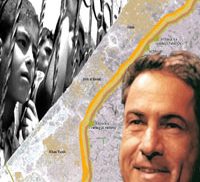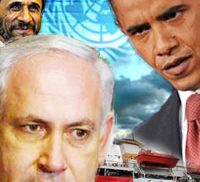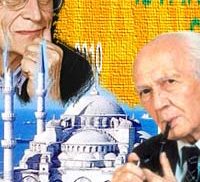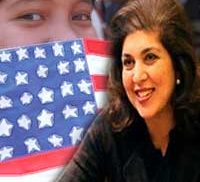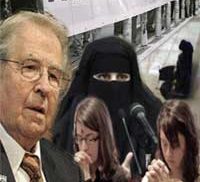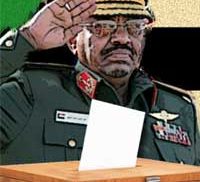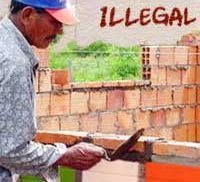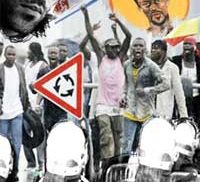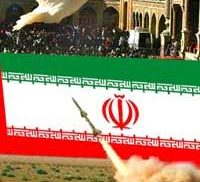This dossier stems from the debate sparked by Elizabeth Suzanne Kassab’s article—which opens this collection—on the transformation of the Arab intellectual scene after 2011. Her notion of a “new contemporary” in Arab thought prompted a series of contributions that do not aim to offer solutions, but rather to raise new questions, probe unresolved issues, and put forward critical perspectives. Bringing together Kassab’s essay and two related pieces, the dossier explores how Arab thought is redefining itself in light of the uprisings, the failures of political transitions, and the moral and intellectual rupture marked by Gaza.
Dossiers
- Former IAEA president and the moderate Mohamed El Baradei has returned home to Egypt and intends to stand in the next presidential elections. While the elections for the Upper House marked the usual foregone success of President Mubarak’s party, the Muslim Brotherhood has expressed its support for El Baradei. Can this man bring about change? And, above all, will he be permitted to run against the “Pharaoh”?
- «Not only is the blockade criminal and cruel to the Palestinian people, it is also not in Israel’s best interests,» says Israeli Haaretz journalist Gideon Levy speaking of the Gaza blockade. After the shock of the attack on the pacifist Freedom Flotilla sailing to Gaza, the situation in the Gaza Strip has returned to the centre of the international debate. Following Barack Obama’s example, the most important European Foreign Ministers have invited Israel to lift the blockade. Gaza’s tragedy can only strengthen Hamas, Hezbollah and the enemies of the Jewish state.
- The attack on the pacifist flotilla carrying humanitarian aid to Gaza resulted in the death of ten activists, a diplomatic crisis with Turkey (Israel’s only remaining long-standing ally in the Muslim world) and an international public relations disaster. Europe protested and the White House is embarrassed. Israel’s enemies Ahmedinejad and Hamas celebrate and thank Prime Minister Netanyahu.
- Do political strategies for supporting a gradual coming together of different cultures exist? Does religion help or hinder this? These were the questions at the center of this third edition of Resetdoc’s annual conference in Istanbul (Realigning liberalism: pluralism, integration, identities, May 19th -24th), that, among others, has also hosted as honoured guests Zygmunt Bauman and Alain Touraine.
- «What Secretary Clinton has asked me to do is to develop more partnerships around the world with Muslim communities, based on mutual interest and mutual respect» says Farah Pandith, Special Representative to Muslim Communities for the United States Department of State. «We need to use the might of the U.S. government as the convenor and the facilitator and the intellectual partner with people on the ground who have ideas, from civil society, foundations and students and faithful leaders.»
- «As I see it, faith is faced with two basic temptations or derailments: the “privatization” of faith and the “politicization” of faith. In both cases, it is clear that religious faith cannot serve as the “salt of the earth”.” This is the opinion expressed by Fred Dallmayr, Packey J. Dee Professor of Political Theory at the University of Notre Dame, for whom ResetDoc organised a series of events in March in the most important Italian cities, on the occasion of the publication of his most recent book, Il dialogo tra le culture (I libri di Reset, Marsilio).
- In April, after years of massacres and violence, Sudan is to hold its first multi-party elections since 1986. It is unlikely that the elections will result in change. First it will be necessary to verify what degree of legitimacy will be permitted by President Al Bashir, charged by the International Penal Court with atrocities committed in Darfur. And yet, also in view of the January 2011 referendum on independence for Southern Sudan, this could be the first step towards change. In the meantime, the USA, Europe and the African Union are following events with interest.
- An immigrant arriving with peaceful intentions has the right to enter another country, however, Yale philosopher Seyla Benhabib wonders in this video-interview with Resetdoc, what restrictions are there to his right to citizenship? As explained by scholars Olivier Roy and Renzo Guolo, this is a controversial subject that clashes with the mood of public opinion, with racism and the problems that exist in really understanding the religion and customs of those asking to become part of our communities.
- Guerrilla warfare broke out at the beginning of January in Rosarno, in the province of Reggio Calabria, between part of the local population and illegal African immigrants. There were clashes in which shots were also fired. And yet those immigrants were the only ones in the town who revolted against the ‘ndrangheta. Roberto Saviano, the author of ‘Gomorra’ wrote “Immigrants do not only come to Italy to take the jobs Italians no longer want, but also to defend rights that Italians no longer wish to defend.” Are we sure we want to get rid of them?
- The regime in Teheran continues to repress dissent and goads the international community on the subject of nuclear power. What can the West do? How can the West help the ‘Green Wave’? In a video-interview with Resetdoc, philosopher Ramin Jahanbegloo emphasises how this movement manages to unite Islam and human rights. Are new sanctions necessary as suggested by The Economist?




